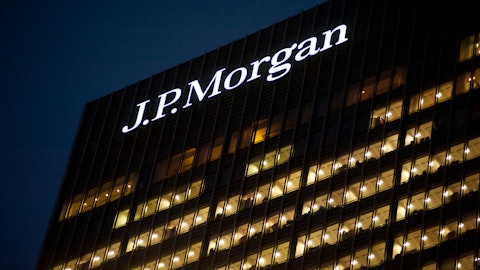Robert Rodriguez and Steven Romick’s First Pacific Advisors LLC recently published its first quarter commentary for investors of the FPA Crescent Fund, revealing its current views on the market and its thoughts on shareholder activism. The FPA Crescent Fund is the flagship fund of First Pacific Advisors LLC, accounting for almost 59% of the $29 billion in assets that the firm currently manages. Though the Crescent Fund underperformed the S&P 500 during the first quarter, being down by 0.19% compared to the S&P 500’s return of 1.35%, it has managed to beat the index by 128 basis points on an annual basis since its inception in 1993. First Pacific Advisors has engaged in several activist campaigns over the last few years and defended shareholder activism carried out by long-term shareholders in the letter, which was penned by Mr. Romick.
“Stereotypical activist tactics like delivering poison pen letters to boards and management and short-term financial engineering often produce ephemeral benefits. Real engagement by meaningful owners seeking to maximize long-term intrinsic business and per-share value tends to have longer-lasting effects. We are only interested in the latter approach, as we believe that dovetails with our desire to have an ownership culture in the boardrooms of companies in which we invest.”
In the letter, Mr. Romick, the firm’s portfolio manager, revealed that the fund increased its exposure to the financial sector to 20.5% of its portfolio by the end of the first quarter, deeming the sector as a whole to be undervalued. He also disclosed that though there were no major winners or losers in the fund’s portfolio during the first quarter, First Pacific Advisors used the market volatility during the quarter to increase its holdings in each of its top five losers. In the remainder of this article, we will discuss five major holdings of the fund at the end of 2015, three of which were among its top winners during the first quarter, while the other two were among its top losers.
We track prominent investors and hedge funds because our research has shown that historically their stock picks delivered superior risk-adjusted returns. This is especially true in the small-cap space. The 15 most popular small-cap stocks among a select group of investors delivered a monthly alpha of 80 basis points between 1999 and 2012 (see the details here).
Top Losers
#2 American International Group Inc (NYSE:AIG)
– Shares held by First Pacific Advisors LLC (as of December 31): 9.27 million
– Value of Holding (as of December 31): $574.40 million
American International Group Inc (NYSE:AIG) became a part of First Pacific Advisors LLC’s portfolio during the second quarter of 2011. Though the stock tumbled for the next six months, it steadily rose between 2012 and 2015, gaining about 250%. It’s been a different story this year however, with shares of the insurance giant being down by 11%, with the dismal quarterly numbers reported by the company on May 2 proving to be the latest downward catalyst. While the Street was already expecting AIG to report poor quarterly numbers due to the losses that it incurred on its investments during the first quarter, it wasn’t expecting the company to declare EPS of just $0.65, missing the consensus estimate by $0.35. Along with its earnings, AIG also revealed that it returned $4.00 billion of capital to shareholders during the first quarter and as of May 2 had bought back $870 million worth of stock during the second quarter. While First Pacific Advisors inched up its stake in American International Group Inc (NYSE:AIG) by 3% during the fourth quarter, billionaire John Paulson‘s Paulson & Co. reduced its holding in the company by 21% to 11.60 million shares during the same time.
Follow American International Group Inc. (NYSE:AIG)
Follow American International Group Inc. (NYSE:AIG)
Receive real-time insider trading and news alerts
#1 Citigroup Inc (NYSE:C)
– Shares held by First Pacific Advisors LLC (as of December 31): 11.12 million
– Value of Holding (as of December 31): $575.55 million
With its shares tumbling by almost 20% during the first quarter, Citigroup Inc (NYSE:C) ended up becoming the top loser in First Pacific Advisors’ equity portfolio during the period. Interestingly, Citigroup Inc (NYSE:C) was the only stock that Mr. Romick discussed in his first quarter letter. He highlighted how Citigroup at one point during the first quarter was trading down by almost 60% to its tangible equity. Furthermore, he also explained how the stock is extremely cheap right now, even after accounting for all of the downside risks:
“On the eve of the global financial crisis, Citi had just 3% tangible equity propping up its tangible assets whereas today, it has 10.5%, higher by a factor of more than three. Some of Citi’s loans will default and it won’t get full recovery in all cases. When we stress test its balance sheet and assume an unusually bad outcome for its loan book, its capital ratios remain solid. If half of its China, energy and metals & mining loans were to default this year and Citi recovered just 40 cents on the dollar, and if consensus earnings are correct, then Citi would still earn money this year and end 2016 with more than $60 per share of tangible book value and tangible equity to tangible assets of more than 10%. That would mean book value would actually increase despite the write-offs. We, therefore, thought Citi at a 40% discount to its minimum worth was a great risk/reward.”
On April 19, analysts at Goldman Sachs reiterated their ‘Buy’ rating on the stock and upped their price target on it to $53 from $52. A hedge fund that increased its stake in Citigroup during the first quarter was Brian Gaines‘ Springhouse Capital Management, which lifted its holding by 10% to 626,000 shares.
Follow Citigroup Inc (NYSE:C)
Follow Citigroup Inc (NYSE:C)
Receive real-time insider trading and news alerts
We’ll share the fund’s top winners during the first quarter on the next page.
Top Winners
#3 United Technologies Corporation (NYSE:UTX)
– Shares held by First Pacific Advisors LLC (as of December 31): 5.85 million
– Value of Holding (as of December 31): $562.12 million
Moving on, First Pacific Advisors increased its stake in United Technologies Corporation (NYSE:UTX) by 3% during the fourth quarter. Despite falling by 13% in the first few weeks of 2016, United Technologies Corporation’s stock managed to end the first quarter with a gain of nearly 5%. The stock continued its rally in April, but has lost some steam recently, after the company reported its first quarter numbers. While analysts were expecting United Technologies Corporation (NYSE:UTX) to report EPS of $1.39 on revenue of $13.18 billion for the quarter, the company beat their expectations by declaring EPS of $1.47 on revenue of $13.36 billion. On May 3, analysts at RBC Capital released a note in which they dropped their rating on the stock to ‘Sector Perform’ from ‘Outperform’ and also lowered their price target on it to $108 from $109. In their note, the analysts explained that when they had last upgraded United Technologies Corporation, it was because Honeywell International Inc. (NYSE:HON) was interested in acquiring the company, but recent actions by the latter suggest that it is no longer interested. That along with the stagnant underlying business outlook for United Technologies Corporation is what prompted them to downgrade the stock. Billionaire Ken Fisher‘s Fisher Asset Management increased its stake in the company by 2% to 8.37 million shares during the first quarter.
Follow Rtx Corp (NYSE:RTX)
Follow Rtx Corp (NYSE:RTX)
Receive real-time insider trading and news alerts
#2 Aon plc Class A Ordinary Shares (UK) (NYSE:AON)
– Shares held by First Pacific Advisors LLC (as of December 31): 7.58 million
– Value of Holding (as of December 31): $700 million
The stock of the British financial services firm Aon plc Class A Ordinary Shares (UK)(NYSE:AON) has been on a consistent uptrend since February, ending the first quarter up by 13.67%. It recently made its lifetime high of $106.78 and currently trades with year-to-date gains of 15%. Though this rise in the stock has been beneficial for the shareholders of the company, it has reduced the stock’s annual dividend yield to 1.25%, lowering its appeal to potential fixed income investors. On April 28, the company reported its first quarter numbers, declaring EPS of $1.35 on revenue of $2.80 billion versus analysts’ expectations of EPS of $1.33 on revenue of $2.88 billion. For the same quarter of the previous financial year, the company reported nearly identical EPS and revenue of $1.37 and $2.80 billion respectively. Following the earnings release, analysts at RBC Capital reiterated their ‘Outperform’ rating on the stock on May 2, while upping their price target on it to $114 from $105. Even though First Pacific Advisors increased its stake in the company by 3% during the fourth quarter, it still lagged behind Boykin Curry‘s Eagle Capital Management, which increased its stake in the company by 5% to 13.88 million shares during the same time, making it the largest shareholder of Aon plc Class A Ordinary Shares (UK) (NYSE:AON) in our database at the end of 2015.
#1 Oracle Corporation (NYSE:ORCL)
– Shares held by First Pacific Advisors LLC (as of December 31): 24.18 million
– Value of Holding (as of December 31): $883.48 million
The largest equity holding of First Pacific Advisors at the end of 2015 was Oracle Corporation (NYSE:ORCL), which also happened to be its biggest winner during the first quarter. Though the stock has given some of the 12.45% gains that it made during the first quarter back over the last two weeks, it is still trading up by 6.42% year-to-date, outperforming most of its old tech peers by a wide margin. The company recently made two acquisitions in the cloud space. On April 28, it acquired Textura (NYSE:TXTR) for $663 million, and then went ahead and acquired Opower (NYSE:OPWR) for approximately $532 million on May 2. Most analysts who track the company have appreciated these acquisitions and acknowledge that the company is making significant progress in the cloud space, especially in the areas of Software as a Service (SaaS) and Platform as a Service (PaaS). However, some of them feel that Oracle Corporation (NYSE:ORCL) still needs time to bridge the gap between its legacy revenue and cloud-related revenue, which they contend is the reason why its stock could see limited upside over the next few quarters. Brad Dunkley and Blair Levinsky‘s Waratah Capital Advisors initiated a stake in Oracle Corporation (NYSE:ORCL) during the first quarter, purchasing 68,100 shares of the company.
Follow Oracle Corp (NYSE:ORCL)
Follow Oracle Corp (NYSE:ORCL)
Receive real-time insider trading and news alerts
Disclosure: None





